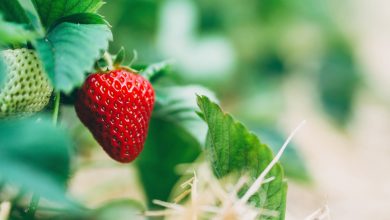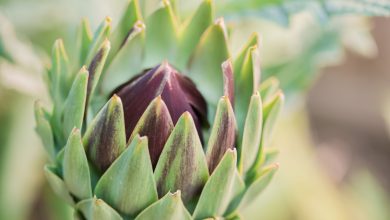Types of fertilizers for plants: how to choose the right one
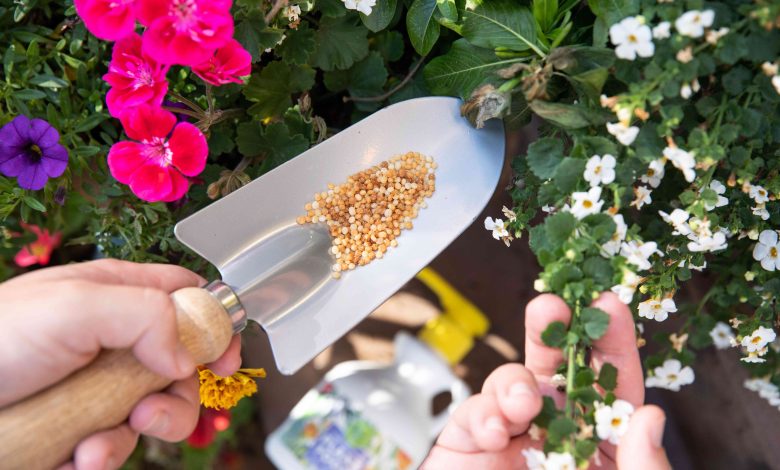
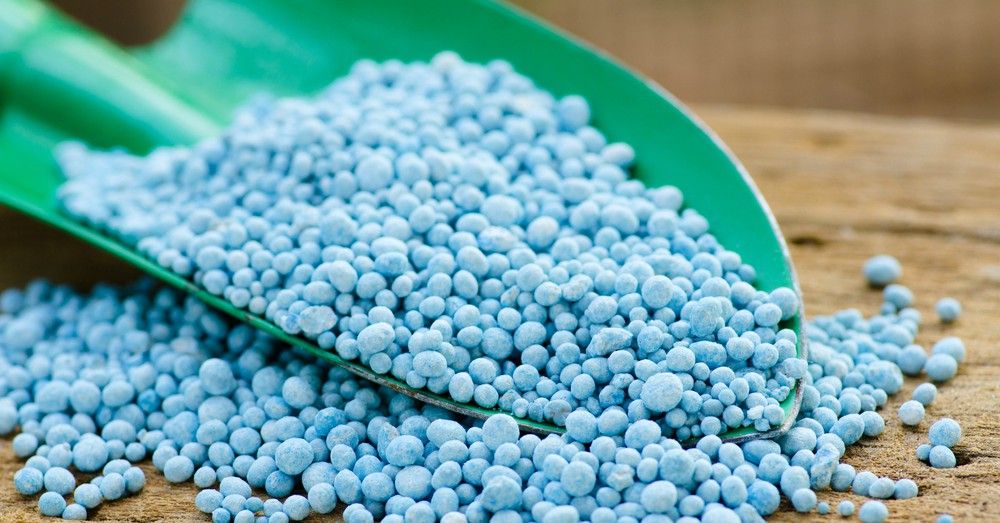
The arrival of spring is an ideal time to nurture our plants. A way to help them recover after the cold of winter and, at the same time, to prepare them for the time of greatest wear. For this reason, knowing the different types of fertilizers for plants is the best way to give each of them what they demand. A way to find the most suitable fertilizer so that this nutritional supplement has a positive effect on the health of the plant.
Beyond knowing the types of fertilizers for plants, it is important to consider that in general a healthy plant does not need a fertilizer. Younger plants or those that are developing do need it, since in both cases additional nutrition will be more than welcome. However, we cannot overdo it. Whatever the type of fertilizer for plants, we will always have to administer them in a timely manner and strictly follow the instructions of each product. Otherwise, we can make the mistake of burning the plant.
Thus, and beyond knowing the differences between liquid and solid fertilizer, today we want to delve a little more into the different types of fertilizers for plants that exist. A way that, when you have to choose the most suitable for yours, you do it correctly.
TYPES OF FERTILIZERS FOR PLANTS ACCORDING TO THEIR COMPOSITION
To enrich both the garden and its inhabitants, we have a good number of types of plant fertilizers to choose from. Some that are adapted, on many occasions, to certain situations or, even, to the characteristics of each plant. Beyond this, the types of fertilizers for plants that exist are included in two: organic fertilizers and mineral fertilizers.
Two different fertilizers fundamentally due to their origin, which should be known in more detail before opting for one or the other.
Organic fertilizers
As its name indicates, its origin is natural. They are created by natural products and are the most respectful for the environment. Their main advantage is that, in addition to fertilizing the plant, they enrich the soil in which we use them. Despite this, they have a small drawback: they are low in nutrients. Something that forces either to use more quantity, or to complement them with mineral fertilizers.
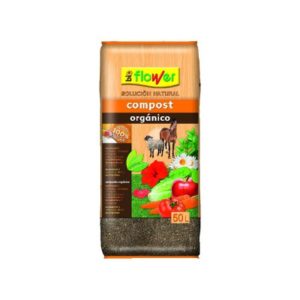
The main organic fertilizers that we usually use are manure, compost, humus or peat. Beyond their benefits as fertilizers, these types of plant fertilizers are also fantastic for leveling the garden terrain or creating a rich bed for our plants, trees or shrubs.
Within this group we could also consider algae extract fertilizers. Some that are postulated as the ideal for certain situations, due to their large amount of nutrients. These types of fertilizers for plants are perfect for quickly replenishing them from specific attacks such as drought, pests or acclimatization when they get home.
mineral fertilizers
This name is given to the types of fertilizers for plants created specifically for each one of them. Some formulas in which the presence of nitrogen, phosphorus, potassium and other key elements is balanced in a laboratory. In addition to minerals, this type of plant fertilizer also has inorganic substances that further enrich the formula.
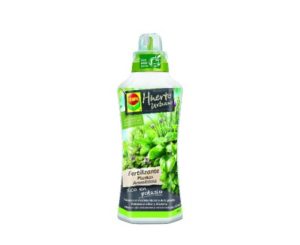
One of their main advantages is that they help maintain the fertility of the soil in which they are applied. But, in addition to this, we must add another one: they are the ideal response to fertilize the plant in times of stress or compromise. Since the formulations are specific, these types of fertilizers for plants will be nourishing it with what it needs both for its plant characteristics and for the environmental circumstances.
In addition to this aspect, its application versatility makes us find the ideal one for us. Liquid, granulated, in sticks or water soluble: we choose the most suitable format for us and our plants.
TYPES OF FERTILIZERS FOR PLANTS ACCORDING TO THEIR USE
Once we have discovered the different types of fertilizers for plants, let’s go one step further. And there are many that, either because of the type of soil in which they live or because of their specific needs, require a certain fertilizer. A fertilizer that helps them stay healthy and strong, providing them with the necessary nutrients.
Although the range of fertilizers for plants is enormous, since we can even find specific organic fertilizers for gardens, let’s see the five most common. Five types of fertilizer for five different types of plants.
1. Universal subscription
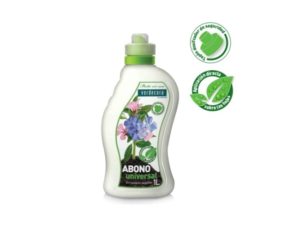
If you need to buy liquid fertilizer for plants online, do it here in our store
A generic fertilizer that will cover the nutritional needs of our indoor or outdoor plants. Universal fertilizer usually has a balanced formula, in which nitrogen is usually the protagonist. An element that will help to invigorate and strengthen our plants.
We can find it in two formats: granulated or liquid universal fertilizer. If we need to quickly cover a nutritional deficiency, the liquid will be ideal.
2. Fertilizer for rose bushes
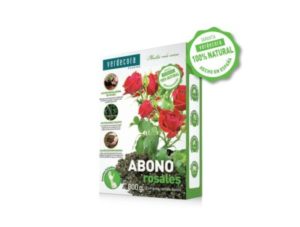
Also perfect for other shrubby flowering plants such as hibiscus or jasmine. This type of fertilizer for plants is formulated to meet the nutrient needs demanded by these plants. On the one hand, a high percentage of nitrogen to strengthen the growth of the leaves. On the other hand, the same amount of potassium that not only favors the coloration of the leaves but also their resistance to diseases.
In addition, fertilizers for rose bushes include magnesium: an incredible enhancer of photosynthesis.
3. Fertilizer for green plants
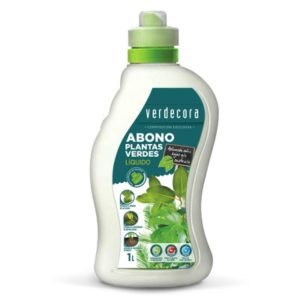
In order to maintain the characteristic greenness of these plants, it is essential that the fertilizer has two fundamental components. On the one hand, potassium; on the other, iron. This second is precisely responsible for allowing that intense green so characteristic of these plants that are among some of the five perfect purifying plants for the home.
In addition, this type of formulation usually has a plus: humus to make the soil even more fertile.
4. Fertilizer for citrus
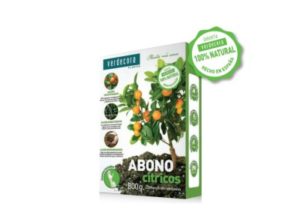
The creation of fruit is one of the vegetable exercises that involves the most wear and tear on a plant. Maintaining the ornamental beauty of our fruit tree and ensuring that it also bears fruit means supplying it with a good amount of nitrogen but also potassium. These two elements are the most demanded by fruits, so it is important that our fruit trees have good reserves of them.
5. Fertilizer for hydrangeas
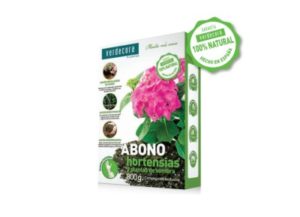
Also suitable for shade plants. Among the care of hydrangeas, it is necessary to highlight their demand for an acid soil. A fundamental requirement for the life of these plants but also for their flowering. In this case, the high concentration of nitrogen and potassium, the latter being vital: it helps protect the plant from diseases.
And, beyond these types of fertilizers for plants, there are many more. Some designed to respond to the needs of each of the plant families.
Authentic allies for our plants to grow strong and look the way they deserve.
If you have plants and want to nourish them, discover our selection of types of fertilizers for plants> Fertilizers and fertilizers

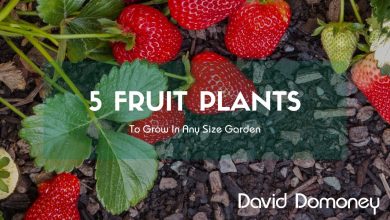
![Photo of How to Plant Tulips and Have a Spectacular Garden: [12 Steps + Images]](https://www.complete-gardening.com/wp-content/uploads/2022/08/how-to-plant-tulips-and-have-a-spectacular-garden-12-steps-images-390x220.jpg)
